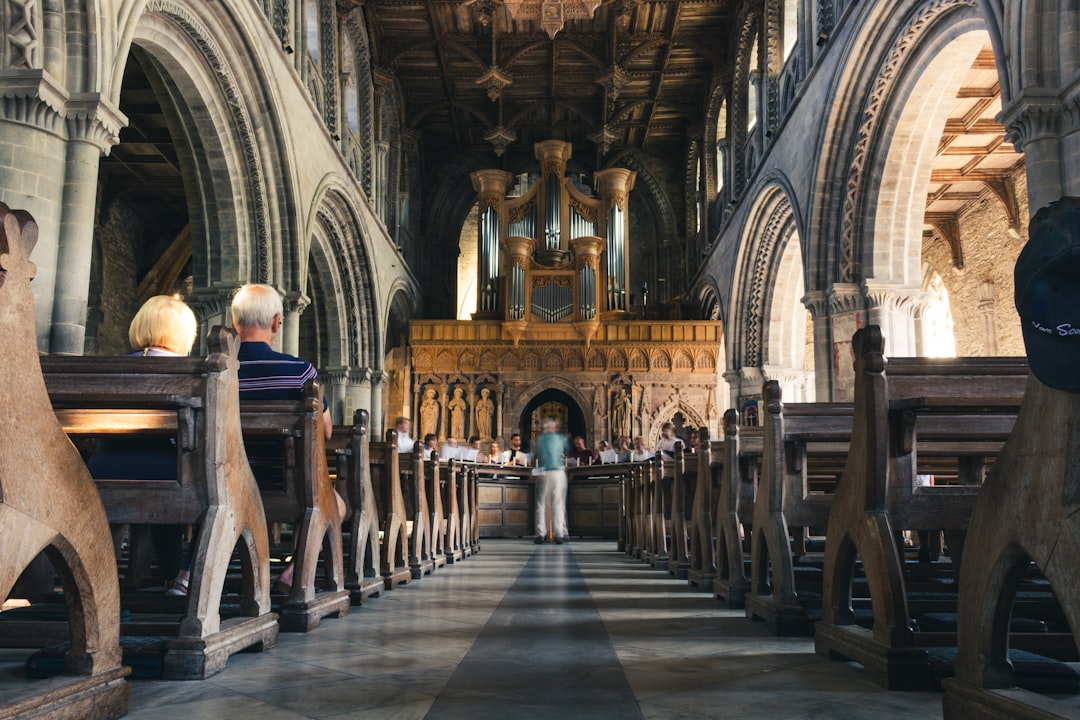Religion and science are two seemingly opposing forces that have been intertwined throughout history. From debates on the origins of the universe to ethical dilemmas in genetic engineering, the relationship between religion and science continues to be a complex and often controversial topic. However, understanding the connection between these two disciplines is crucial in order to appreciate the full scope of human knowledge and experience.
At its core, religion is a set of beliefs and practices based on the existence of a higher power or powers that govern the universe. These beliefs often provide a moral compass for individuals, guiding their behavior and shaping their worldview. Science, on the other hand, is a systematic and empirical study of the natural world through observation and experimentation. It seeks to explain natural phenomena and understand the underlying laws that govern the universe.
Despite their differences, religion and science both aim to seek truth and make sense of the world around us. While religion relies on faith and revelation to explain the mysteries of existence, science relies on evidence and reason to uncover the workings of the natural world. In this sense, religion and science are not necessarily incompatible but rather two different ways of understanding and interpreting reality.
One of the key areas in which religion and science intersect is the question of origins. Both disciplines seek to explain the beginning of the universe and the existence of life on Earth, albeit through different means. Many religious traditions have creation stories that describe how the world came into being, often attributing its origins to a divine creator. In contrast, science offers the theory of evolution and the Big Bang theory to explain the development of life and the universe over billions of years.
While there are certainly points of tension between religious creation narratives and scientific theories, it is important to recognize that both can coexist and complement each other. Many religious believers see no conflict between their faith and scientific discoveries, viewing them as different aspects of the same truth. For example, the Catholic Church has accepted the theory of evolution as compatible with its teachings, highlighting the harmony between faith and reason.
Another area where religion and science intersect is in ethical and moral considerations. Both disciplines provide a framework for understanding right and wrong, guiding human behavior and decision-making. While religion often derives its moral values from sacred texts and teachings, science can offer insights into the consequences of our actions and the impact of technology on society.
For example, debates over genetic engineering and stem cell research raise moral and ethical questions that involve both religious beliefs and scientific knowledge. Religious traditions may have differing views on the sanctity of life and the ethics of manipulating genetic material, while scientific research can provide valuable information on the potential benefits and risks of these technologies.
Despite their differences, religion and science share a common goal of seeking truth and understanding the world around us. Both disciplines offer unique perspectives and insights that can enrich our understanding of the human experience. By recognizing the connection between religion and science, we can embrace the complexity of reality and engage in meaningful dialogue that bridges the gap between these two disciplines.
Ultimately, the connection between religion and science is a reflection of the diversity and richness of human thought and experience. Both disciplines offer valuable insights into the nature of reality and the mysteries of existence, inviting us to explore the depths of our beliefs and the wonders of the natural world. By understanding and appreciating the connection between religion and science, we can broaden our horizons and deepen our understanding of the universe and our place within it.
In conclusion, the relationship between religion and science is a complex and multifaceted one that requires careful consideration and open-mindedness. While there may be tensions and conflicts between these two disciplines, they also offer valuable insights and perspectives that can enrich our understanding of the world. By recognizing the connection between religion and science, we can embrace the diversity of human knowledge and experience, and engage in meaningful dialogue that transcends boundaries and fosters a deeper appreciation of our shared humanity.

